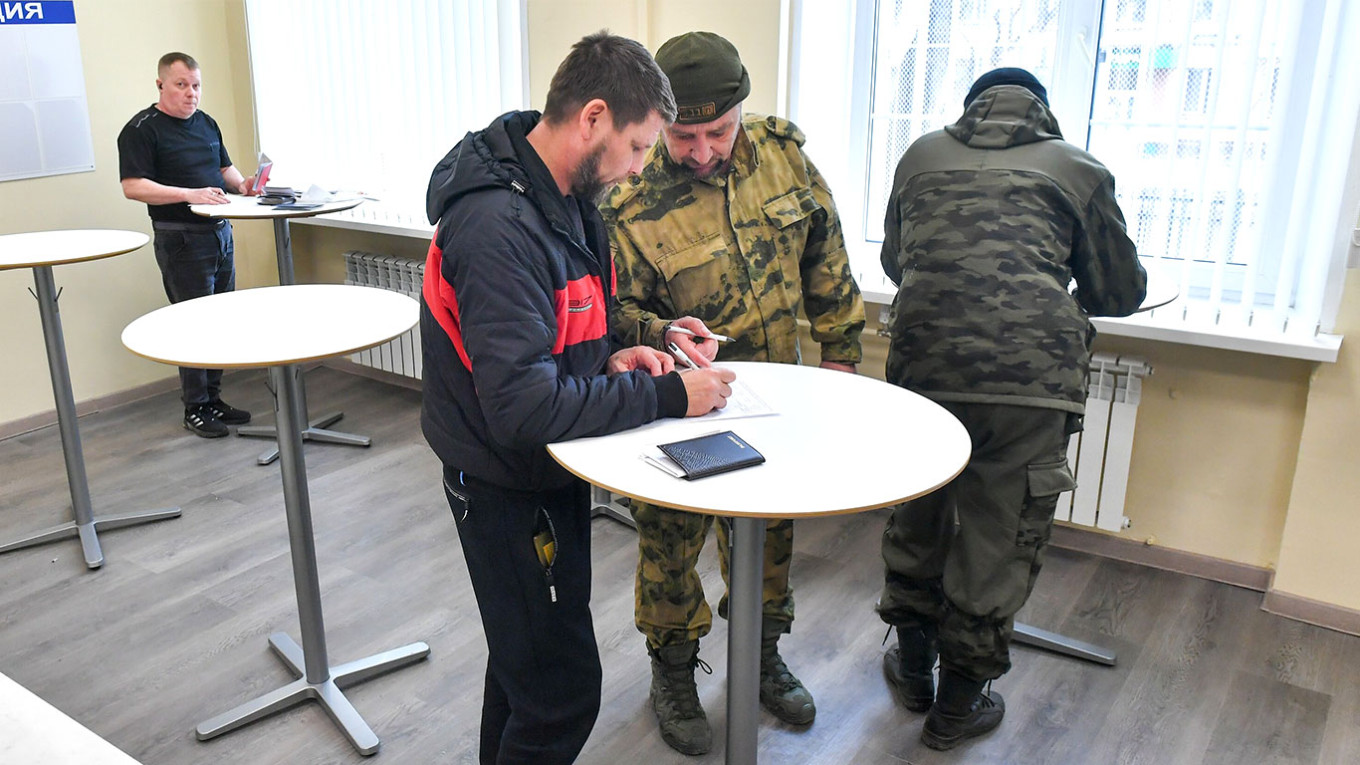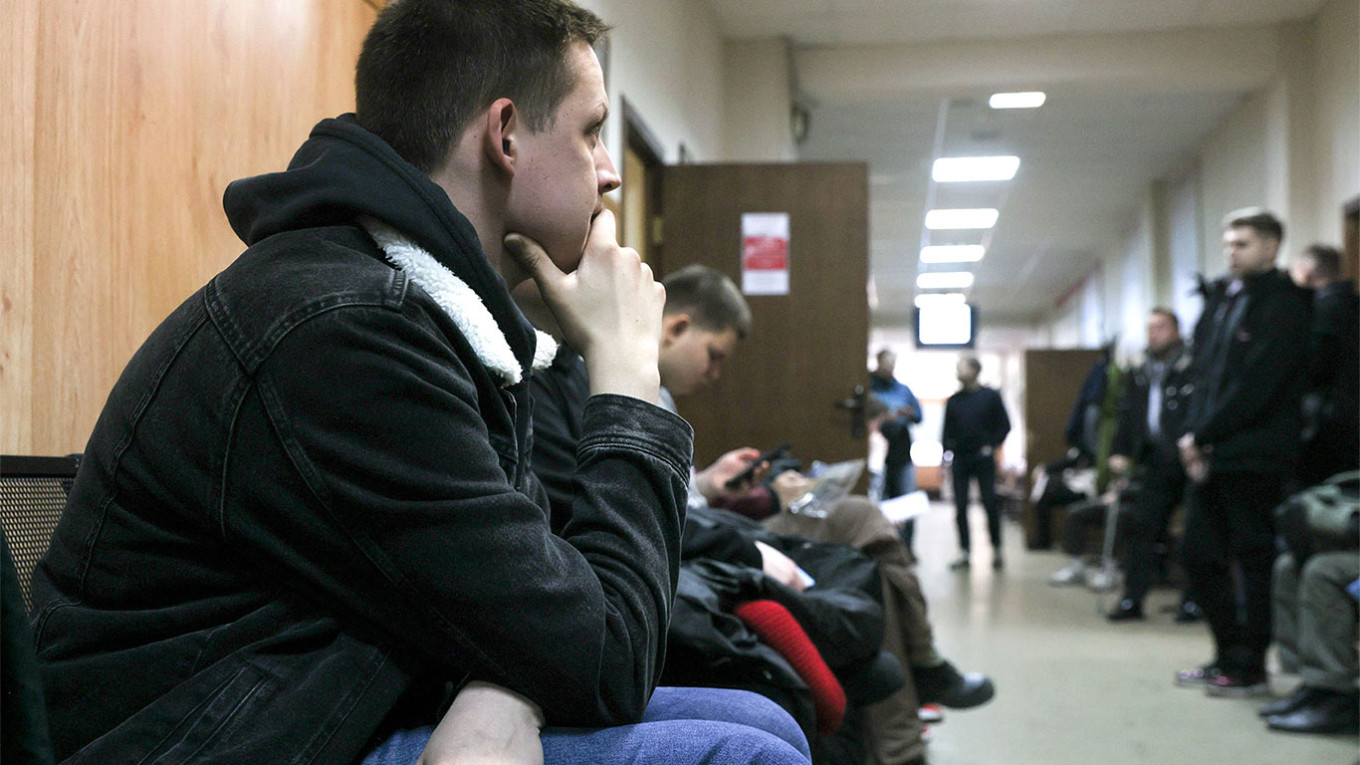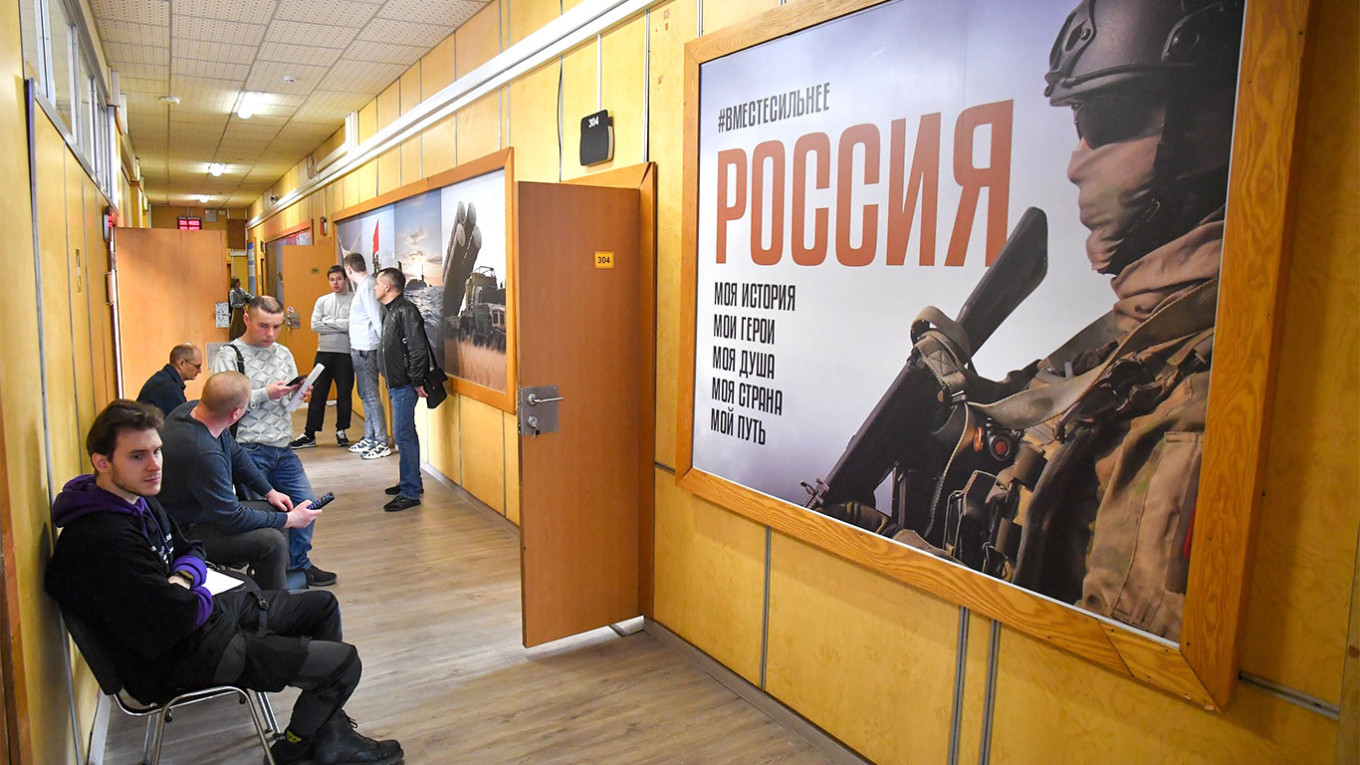It seems the Kremlin has largely given up on gathering troops for its war in Ukraine through mobilization. Likely because Russia's leadership remains fearful of a domestic political backlash. Instead, they have been upping efforts in recent months to encourage men to sign up voluntarily and serve as contract soldiers.
That said, Putin is keeping the mobilization option open just in case — his first mobilization decree remains legally in force.
Our sources who were involved in organizing Russia’s September mobilization drive do not see any signs that a new mobilization push is imminent. Rather, the goal is to convince Russians to join up as professional soldiers. And our sources note that officials are working to implement Defense Minister Sergei Shoigu’s promise from last year that all mobilized men will eventually be replaced by contract servicemen.
“If we were really at war with the full might of NATO, then mobilization would be logical and we’d all go off to defend the motherland. But what’s the point of doing that at the moment?” said one well-placed source. “Mobilized troops are not required to fulfill their civic duty forever.”
At a meeting late last year, Shoigu announced plans to bolster the total number of troops in the army, including by enlisting more contract soldiers. The ministry has since said it wants to recruit 521,000 contract servicemen in 2023 (116,000 more than in years prior to the war).

In a similar way to how Russia calls up men aged 18-27 every year for their compulsory military service, regional authorities receive an annual quota from the Defense Ministry for the number of contract soldiers they will be required to provide.
“It’s always been like this — it’s nothing new,” explained one regional source, noting that this year the contract soldier quota for his region was higher, but not dramatically so.
It’s worth pointing out that, earlier this week, Moscow City Hall — which has traditionally tried to distance itself from the war — launched a new site, hotline and Telegram chatbot for those interested in joining the military. New recruits are eligible for all sorts of special payments, including some publicized by Moscow Mayor Sergei Sobyanin — up for reelection this fall — who recently pledged cash benefits for family members of serving soldiers. Nowhere in City Hall’s advertising drive is the word “Ukraine” mentioned.
Asked to describe the type of recruits Russia wants to attract, a source said that they should be “those who just aren’t cut out for civilian life.” No one, apparently, is being forced to become a contract soldier — and you have to quit your day job. Contract soldiers — unlike those subject to mobilization — have the “freedom” to choose, our source believes.
There is, however, one group that is acutely vulnerable to being arm-twisted into signing up — the young men currently completing their military service. As noted above, all Russian men aged 18-27, with few legal exceptions, are obliged to serve in the military for 12 months. It’s well known that many of these young men are subsequently cajoled into signing up full-time. And it’s clear the authorities are trying to accelerate this conversion rate.
On April 6, Russia’s lower house of parliament, the State Duma, voted to return to a second reading of a bill on amending military conscription procedures, which have not been changed for decades. This bill has a very interesting history.

A year ago, right at the start of the war, the State Duma quietly introduced the bill, which obliged all men eligible for military service to report to recruitment offices even without receiving an official summons. Unbeknown to many, deputies approved the bill in its second reading two days before the start of the war — and a third reading was planned for March 2022.
After Russia’s invasion of Ukraine, however, the bill caused a huge outcry. It was put on pause, and conscription rules remained unchanged. But back then, it was unclear how the war in Ukraine would unfold, how long it would last and what resources the state would require. There was no urgent need for more soldiers.
Now, the situation has changed — and that’s putting it mildly.
So why is the bill going back for a second reading? The Chairman of the Duma's Defense Committee said that the bill just needs a new date for when it will enter force. But the fact of it being returned means that there could also be changes to the substance of the future law.
The day before the start of Russia’s spring conscription campaign (to call up men for their mandatory military service), a representative of Russia’s General Staff announced that, thanks to the digitalization of military recruitment offices, conscripts for military service would now be notified of their call-up digitally. On the same day, Russia’s online public services portal, Gosuslugi, disabled the option to delete accounts. And the Deputy Chairman of the State Duma’s Defense Committee, Yury Shvytkin, let slip that receiving a call-up notification online would be the equivalent of receiving it in person — and that anyone attempting to delete their Gosuslugi account would be judged a draft dodger. Even Defense Minister Shoigu has been talking about the “digital draft” as a new reality.
However, current Russian legislation has no provision for an electronic summons and draft documents are only deemed officially served when they have been signed by the recipient. In other words, a “digital draft” is, for the moment, illegal.
Thus, it looks very much like the State Duma will seek to revise the conscription bill to incorporate the possibility of digital summonses issued via Gosuslugi. If military recruitment offices have already digitized their databases, then why should troops still be handed a paper summons? If the old system allows some potential conscripts to slip through the net, the logic goes, then the net needs tightening.
The war in Ukraine is here to stay, and the state’s goal is to give military training to as many people as possible. All the better if they sign a contract after their military service and become regular soldiers who can be dispatched to the frontlines.
A Message from The Moscow Times:
Dear readers,
We are facing unprecedented challenges. Russia's Prosecutor General's Office has designated The Moscow Times as an "undesirable" organization, criminalizing our work and putting our staff at risk of prosecution. This follows our earlier unjust labeling as a "foreign agent."
These actions are direct attempts to silence independent journalism in Russia. The authorities claim our work "discredits the decisions of the Russian leadership." We see things differently: we strive to provide accurate, unbiased reporting on Russia.
We, the journalists of The Moscow Times, refuse to be silenced. But to continue our work, we need your help.
Your support, no matter how small, makes a world of difference. If you can, please support us monthly starting from just $2. It's quick to set up, and every contribution makes a significant impact.
By supporting The Moscow Times, you're defending open, independent journalism in the face of repression. Thank you for standing with us.
Remind me later.










